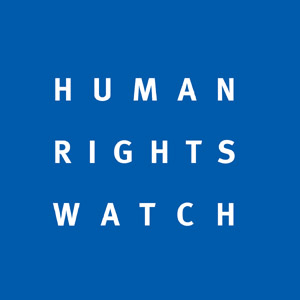Rwanda: Human Rights Watch and the Absolute Truth

Human Rights Watch (HRW) is well known for accepting U.S. wars of aggression so long as they’re conducted according to the Geneva Conventions. HRW famously crusades for the same U.S. wars of aggression for the purpose of protecting citizens of other nations from their own governments. Its warmongering catechism includes Halabja, Rwanda, Srebrenica and now Aleppo, all of which it cites as failures to protect civilians that compel the U.S. to humanitarian war evermore.
This week HRW’s Central Africa Director, Ida Sawyer, produced an HRW absolutist classic, A March 8th HRW “dispatch.” It tells the story of Joseph Nkusi, a Rwandan blogger and political asylum seeker who was deported from Norway after a court rejected his claim that he would be persecuted if he were deported to Rwanda after eight years in Norway. Nkusi was arrested upon arrival, like most Rwandan emigrés who fail to convince Western courts that they will be persecuted in Rwanda. He is now on trial for “genocide ideology,” a Rwandan crime modeled on European “Holocaust denial” laws, which makes it illegal to publicly “deny, revise, trivialize, or negate” the Rwandan Genocide. In Rwanda, even using the description “Rwandan Genocide” is a crime; authorities enforce a law passed in 2008 making “genocide against the Tutsi” the only legal description.
Joseph Nkusi is on trial for claiming that both Hutus and Tutsis were targeted in a “double genocide,” meaning that members of both groups killed each other during the Rwandan war and massacres of 1990 – 1994. Human Rights Watch is OK with Nkusi’s prosecution because its own absolutist conclusions about the genocide are compatible with those of Rwanda’s absolutist, totalitarian government:
“Some of the writings on Nkusi’s blog relay claims about the genocide that are unfounded – stating, for example, that both Hutus and Tutsis were targeted in a ‘double genocide.’ This is offensive to genocide survivors [Tutsis], and contrary to research findings by Human Rights Watch and other independent organizations. Other writings criticize the Rwandan government’s human rights record.”
There is abundant evidence that both Kagame’s Tutsi army and Tutsi civilians targeted Hutu people for mass killing, not only in Rwanda but also in the Democratic Republic of the Congo (DRC). Canadian journalist Judi Rever has documented the massacre of Hutu people committed by Kagame’s army with the help of Tutsi technocrats in, for example, “What Remains Hidden in Rwanda: The Role of Tutsi Civilians in Killing Hutus.”
Australian peacekeepers and Australian artist George Gittoes observed and documented the Kibeho Massacre of Hutu refugees in Rwanda on April 22,1995. The UN Mapping Report on Human Rights Abuse, 1993 – 2003, documented the massacre of Rwandan Hutu refugees who fled into DRC to escape Kagame’s advancing army. In Dying to Live: A Rwandan Family’s Five-Year Flight Across the Congo, Hutu refugee Pierre-Claver Ndacyayisenga recounts their harrowing journey all the way through the Congolese jungle, from east to west, with Kagame’s Rwandan Patriotic Army in pursuit.
In Surviving the Slaughter, Marie Beatrice Umutesi recounts the same horrors, as does the five part documentary Tingi Tingi Hutu Refugee Massacre. Other well documented challenges to the Human Rights Watch narrative include Robin Philpot‘s Rwanda and the New Scramble for Africa: from Tragedy to Useful Fiction, Peter Erlinder‘s The Accidental Genocide, and Barrie Collins‘s Rwanda Genocide: The Myth of the Akazu Genocide Experience and Its Consequences.
It seems that none of this evidence has reached Human Rights Watch or, if it did, the organization was unwilling to recant its own absolutist conclusions about “genocide against the Tutsi.” According to Ida Sawyer, Nkusi’s arrest for daring to differ is justifiable. However, Sawyer is concerned about Rwandans’ freedom to criticize the Rwandan government’s human rights record:
“Nkusi’s trial is an opportunity for Rwanda to show that it clearly distinguishes between ‘genocide ideology’ – a criminal offense in Rwandan law – and free speech, or the freedom to criticize the government or the ruling party.”
. . .
“While some of his writings are reprehensible, the Rwandan authorities should ensure that Joseph Nkusi gets a fair trial and is not prosecuted nor convicted for criticism of the government or the ruling party. International actors, including the government of Norway, should closely monitor the trial proceedings and be prepared to publicly denounce any breaches of fair trial standards or violation of free speech.”
As is so often the case, Human Rights Watch knows the one, the only, and the absolute truth and deploys it to justify human rights crimes, from bombing Libya and Syria to the imprisonment of a Rwandan blogger who dares to differ with the Rwandan government and with HRW’s own “research findings.”

